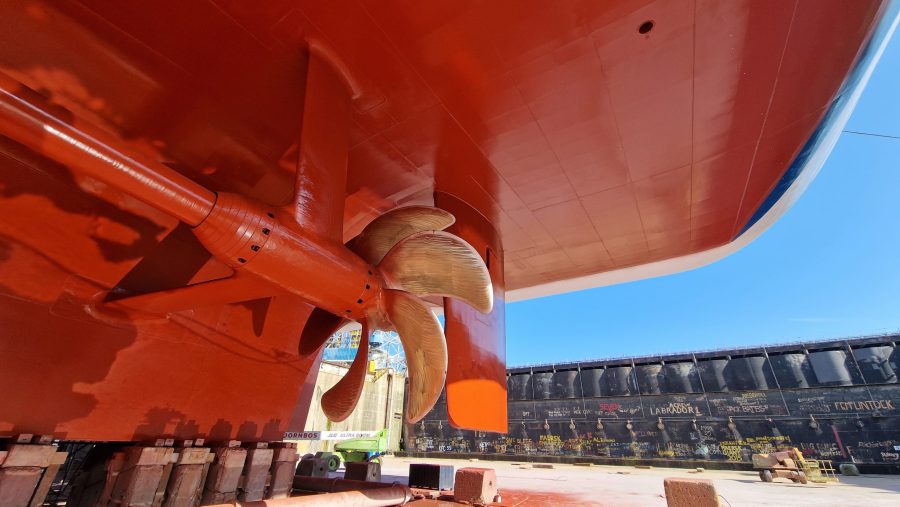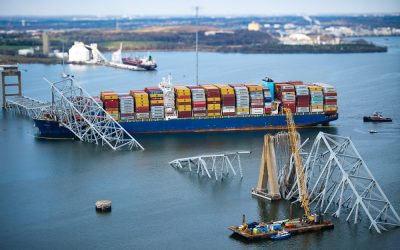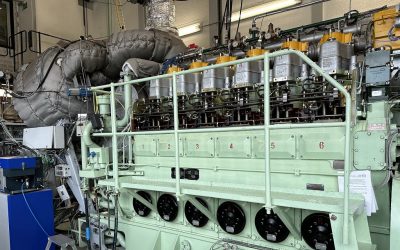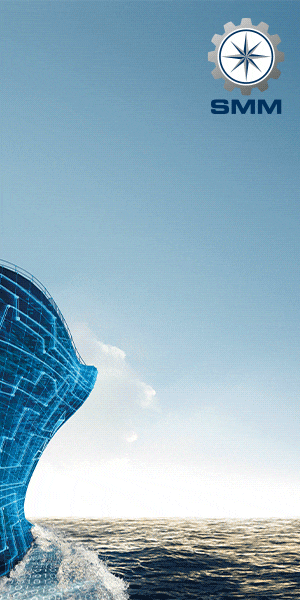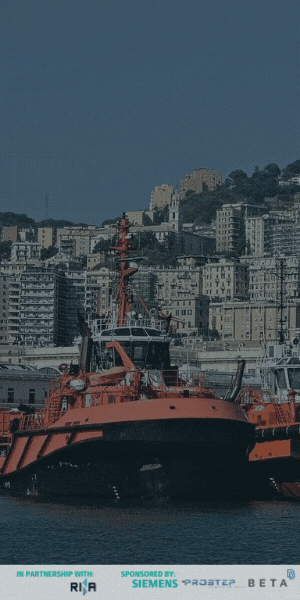Hirokazu Kaji, technical division director, Nippon Paint Marine
There is no ‘silver bullet’ to secure shipping’s decarbonisation, but it’s fair to say that future fuels dominate much of the sustainability conversation in the industry and across the supply chain. Whether it’s discussion of increasingly common LNG, methanol, and biofuel solutions, or less developed alternatives, such as hydrogen and ammonia, the delivery and uptake of viable low and zero-carbon fuels will be essential to meeting the industry’s decarbonisation targets.
Of course, decarbonisation efforts have a regulatory imperative now, following this year’s implementation of the CII and EEXI rules, the expected revised greenhouse gas (GHG) strategy and interim targets from the International Maritime Organization (IMO) in July, and the impending inclusion of shipping in the EU’s Emission Trading Scheme (ETS) next year. All these regulations require action today to begin decarbonising the industry.
However, the road to viable future fuels will be a much more long-term process. It will require the development of a sophisticated green shipping value chain, including the development of new bunkering infrastructure, the associated regulatory standards, as well as the collaboration of all industry stakeholders to manage the transition. What’s more, the cost of fuelling a vessel in the future with an alternative fuel may be – in some cases – 300% more than today.
Both these factors highlight the importance of adopting proven clean technologies that can enable shipowners and operators to reduce emissions in the immediate term, as well as manage the fuel transition to in the future, by driving operational efficiencies that mitigate the exponential increase in the cost of future fuels.
Exponential cost increases are coming
The World Shipping Council identified six critical regulatory and economic pathways to achieving net-zero shipping, all related to zero greenhouse gas fuels. Pathways that need to change or be created include a full well-to-wake lifecycle analysis of fuels, incentivising adoption of alternative fuels, newbuild standards for ships using low- or zero-carbon fuels, and research and development into shipboard and shoreside systems to ensure the safe use of alternative fuels.
Developing the green shipping value chain will be exponentially more expensive than the current bunkering supply chain. The co-chair of the World Shipping Council estimates that the maritime industry will need to spend around US$3 trillion on new ships and fuel systems if it is to reach the goal of zero-emissions shipping.
There are also still significant uncertainties over the availability and price of future fuels. A lack of confidence in greener fuels impacts demand at present, with concerns around the potential for health, safety, and environmental concerns, higher costs, lower energy density and limited availability at ports.
However, some companies are forging ahead with their future fuel plans; Maersk is a notable example. Last year, the company placed an order for six methanol-fuelled 17,000TEU vessels continuing its green transformation by adding to a previous order of 12, 15,000TEU ships which are due to start delivery in Q4 2024. However, Maersk has stated that it could cost US$1,000 per tonne for the vessels to operate using methanol and many of the ships will not run on methanol for the foreseeable future of their operation.
Considering that it takes two tonnes of methanol to get the same calorific value as one tonne of HFO (19.7 MJ/kilogram compared with 41.8 MJ/kilogram for HFO), the ‘real’ price to operate one of these methanol-fuelled vessels is more likely to be US$2,000 a tonne; over 300% more than current VLSFO prices, and over 200% more than MGO prices.
Considering this market dynamic, shipowners and operators need solutions that can reduce fuel consumption and the cost of operation to account for the exponential price increase of low and zero-carbon fuels above current fuels. Charterers and cargo owners also want to charter the most efficient vessels and so there is a wider commercial imperative for shipowners to demonstrate higher levels of operational, environmental, and cost efficiency.
Marine coatings drive impact
Vessel marine coatings are one of the oldest and most widely used clean technologies to improve operational performance, provide greater fuel efficiency and reduce emissions in the maritime industry. Every vessel must have a hull coating, which provides the shipping industry with a unique and ubiquitous opportunity to reduce fuel consumption, its associated costs and emissions through the latest anti-fouling technology. Implementing an effective, proven low-friction antifouling coating can reduce fuel costs and emissions in service by up to 10% when compared to the use of conventional antifouling paints without biomimetic Hydrogel technology. Companies can then redirect this saving towards further decarbonisation initiatives and improve CII ratings.
These operational efficiencies can help companies to manage the costly transition to alternative fuels in the future. Laying the groundwork by adopting clean technologies like a marine coating will help improve operational performance and free up money to spend elsewhere in the business – for example on bunkering future fuels. However, while the diversity and availability of clean technologies is wide, it is important that shipowners and operators look to adopt proven solutions based on thorough due diligence and analysis, to ensure the claimed efficiency savings will become a reality.
The importance of robust R&D
Despite the urgency to reduce emissions, shipowners remain sceptical about the impact and viability of clean technology. This is largely based on a lack of R&D, leading to disputed verification of efficiency claims made by some companies, plus other concerns around investment of cost, time and energy when it comes to installation.
Finding proven solutions amidst a diverse market of clean technologies is achievable and it is important to work with manufacturers that demonstrate rigour in the R&D and testing processes and can verify the efficiency savings and impact that they claim to deliver. For example, Nippon Paint Marine operates at the forefront of technical innovation, investing in state-of-the art R&D facilities and blending learnings from the pharmaceutical industry with consideration for the environment to develop new solutions. One such solution is AQUATERRAS, the world’s first completely biocide-free and proven self-polishing underwater foul-resistant coating that uses the science and materials used in medical anti-thrombogenic polymer technology, where hydrophilic and hydrophobic micro-domain structures actively combine to naturally repel any biological adhesion onto the hull’s surface. AQUATERRAS’s surface is smooth and flat due to its biocide free formulation, as biocides such as copper or cuprous oxide are often comparatively rough.
Taking advantage of proven clean technologies will help companies be more competitive, drive greener operations, help recoup costs and ensure their compliance with future regulations. Making a start on these aims today will help pave the way for a greener industry tomorrow and enable shipping to meet its 2030 and 2050 decarbonisation targets.
Fuel efficiency will be crucial on the road to net-zero, as the industry moves towards alternative fuels, which will have much higher cost implications. Marine coatings will play a key role in helping organisations to meet their sustainability goals, whilst also remaining profitable. What’s more, with significant uncertainties remaining over the wide availability of future fuels, established and proven clean technologies like marine coatings can ensure that companies are able to begin driving meaningful emissions reductions today, regardless of what the future may hold.
